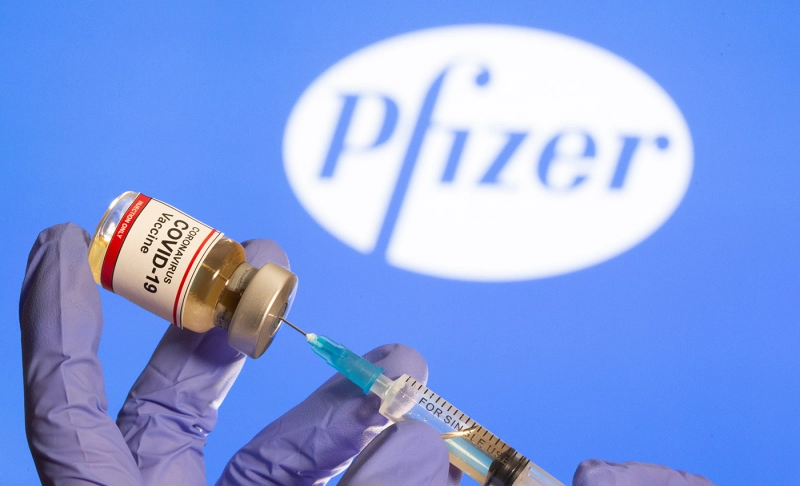By: Devika Kandelwal
September 17 2021

Myocarditis in children is a rare side effect of mRNA vaccines. However, the risk of myocarditis from COVID-19 is higher.
Myocarditis in children is a rare side effect of mRNA vaccines. However, the risk of myocarditis from COVID-19 is higher. The Daily Expose, a conspiracy news site, published an article on September 14, 2021, titled, "13 reasons why you should not allow your child to get the COVID-19 Vaccine." One of the claims it made was that "The risk of Myocarditis (Heart Inflammation) in Children due to the Pfizer Vaccine." However, the text beneath this subheading also talks about pericarditis, which the article claims is also caused by the Pfizer and the Moderna jabs. The article claims that because mRNA vaccines cause these conditions that rarely occur in the general (unvaccinated) population, children should not be given these jabs. According to an article published by Harvard Medical School, until July, 1,000 cases of myocarditis and pericarditis were reported after vaccination against COVID-19 with one of the mRNA vaccines, Pfizer/BioNTech or Moderna. However, we must see this from a wider perspective. Millions of doses of COVID-19 vaccine have been given by then, and there have only been 1,000 cases of heart inflammation. The Centers for Disease Control and Prevention (CDC) found that for every million doses given, there have been 67 cases of heart inflammation in boys 12 to 17 (nine in girls of that age group), 56 in those aged 18 to 24 (six in girls), and 20 in males 25 to 29 (three in girls). That means the risk is relatively low. Judith Guzman-Cottrill, a pediatric-infectious-disease physician at Oregon Health & Science University (OHSU), who helped identify some of the earliest instances of inflammation back in April, told the Atlantic that "the recent cases of post-vaccination myocarditis are relatively mild is, to start, “very reassuring,” and symptoms last just a couple of days; most of the inflammation has been fairly straightforward to treat." Furthermore, an article by the New York Times which discusses a scientific study on this issue states that while it is true that The Pfizer-BioNTech COVID-19 vaccine is associated with an increased risk of myocarditis, it also quoted the co-author of the study Ben Reis, who said: “If the reason that someone so far has been hesitating to get the vaccine is fear of this very rare and usually not very serious adverse event called myocarditis, well, this study shows that that very same adverse event is actually associated with a higher risk if you’re not vaccinated, and you get infected.” While it is true that cases of myocarditis and pericarditis have been found in people under the age of 30 after they were vaccinated with mRNA vaccines, it is also important to remember that chances of developing these conditions if higher if you are not vaccinated, and you get infected. Additionally, to further support their claim, the Daily Expose used a study published in the JAMA network on August 4. The study reviewed "the clinical records of vaccine recipients to identify cases of postvaccination myocarditis or pericarditis." It found that out of the 2,000,287 cases they looked at, "twenty individuals had vaccine-related myocarditis (1.0 [95% CI, 0.61-1.54] per 100 000) and 37 had pericarditis (1.8 [95 percent CI, 1.30-2.55] per 100 000)." These results show that the condition occurs rarely, and most scientists concluded that the conditions are very mild. However, the Daily Expose did not state these facts but instead used two screenshots of graphs showing that myocarditis or pericarditis cases have risen since March 2021. However, the graphs do not just represent an increase in cases post-vaccination, but they show an overall rise in cases of myocarditis or pericarditis in the vaccinated and unvaccinated population. This key context is missing in their article, thus misleading people into believing that the risk from vaccination is much higher than it actually is. The CDC recommends "that everyone aged 12 years and older get vaccinated for COVID-19. The known risks of COVID-19 illness and its related, possibly severe complications, such as long-term health problems, hospitalization, and even death, far outweigh the potential risks of having a rare adverse reaction to vaccination, including the possible risk of myocarditis or pericarditis." The COVID-19 pandemic has given rise to a lot of potentially dangerous misinformation. For reliable advice on COVID-19, including symptoms, prevention, and available treatment, please refer to the World Health Organization or your national healthcare authority.